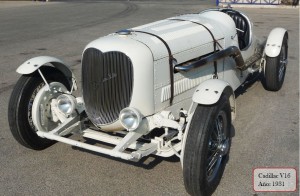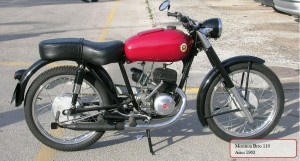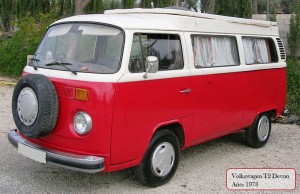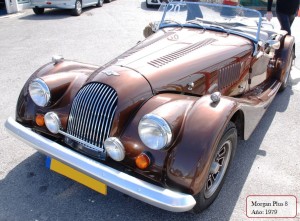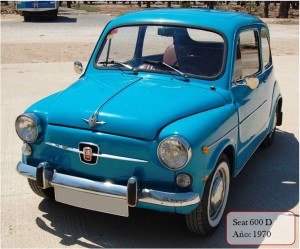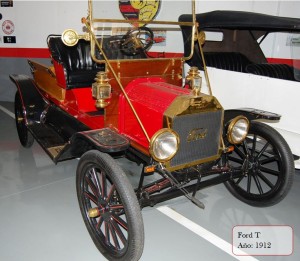Historic vehicles
The classification of historic vehicles aims to protect and preserve cars of historical interest, i.e. our heritage of classic vehicles. It also allows the conditions for driving these vehicles to be adapted to the current situation.
WHICH VEHICLES CAN BE REGISTERED OR CLASSIFIED AS HISTORIC?
All types of vehicles can be registered as historic: cars, vans, lorries, buses, motorcycles, mopeds, motorhomes, caravans, trailers, tractors and agricultural vehicles, special vehicles and any vehicle that is, has been or could have been registered at some point. Even light trailers that do not have a registration number.
WHAT TECHNICAL REQUIREMENTS MUST A VEHICLE MEET IN ORDER TO BE REGISTERED AS HISTORIC?
According to Royal Decree 892/2024, which approves the Regulations on Historic Vehicles, vehicles that meet one of the following conditions may be classified as historic (Article 3 of the Regulations):
- Those that meet all of the following conditions:
a) They must have been manufactured or registered for the first time at least thirty years ago.
b) Their specific types are no longer in production.
c) They are in their original condition, without having undergone any fundamental changes in terms of their technical characteristics or main components, such as the engine, brakes, steering, suspension or bodywork (with exceptions determined during the vehicle inspection), and are in a proper state of maintenance and conservation.
- Vehicles included in the General Inventory of Movable Assets of Spanish Historical Heritage, or declared to be of cultural interest, and those of special interest because they belonged to a prominent figure or were involved in an event of historical significance, as documented.
If the vehicle has been modified in any way, please ask us and we will let you know if it is eligible.
WHAT ARE THE ADVANTAGES OF REGISTERING AS A HISTORIC VEHICLE?
The main advantages for owners of historic vehicles are:
- Longer MOT inspection periods. Depending on the type of vehicle and its age, the MOT inspection periods will be as follows:
-
- MOTORCYCLES: EVERY FOUR YEARS
- MOPEDS: EXEMPT
- OTHER VEHICLES
|
Validity period of Technical Inspections: |
|
|
Age < 40 years |
BIENNIAL |
|
40 years ≤ Age < 45 years |
TRIENNAL |
|
45 years ≤ Age |
QUADRENNIAL |
|
60 years ≤ Age |
EXEMPT |
- Local council vehicle tax. This depends on the local council, but most are exempt from paying this tax. In any case, you should check.
- Possibility of driving without restrictions in the ZBE (Low Emission Zone). Historic registered vehicles are exempt from complying with the anti-pollution regulations that are being imposed. They can drive in the Low Emission Zones defined by the cities.
- No restrictions on use; they can be driven like any other vehicle. Only if their technical characteristics are very special (due to their age) will they have restrictions. For example, if they do not have front seat belts, their speed is limited to 80 km/h.
- MOT exemptions. They will be granted exemptions from MOT tests that they do not have to comply with due to their characteristics. For example, exemption from emissions and noise tests.
GENERAL RESTRICTIONS ON USE
The only general restrictions on use that appear in the regulations are:
- Occasional use. Use is limited to 96 days per year.
- Its use is generally prohibited for the following services:
a) Public passenger transport.
b) Public goods transport.
c) Agricultural activities or construction and services.
Notwithstanding the provisions of the previous point, the use of historic vehicles will be permitted for the transport of persons in hire vehicles with drivers, for static use or display and/or for advertising purposes, for filming and cinematographic or audiovisual activities, as well as for other activities in accordance with transport regulations for which, due to their limited impact on the transport market or the short distances travelled, no authorisation is required.
PROCESS FOR CLASSIFICATION AS A HISTORIC VEHICLE. STEPS TO FOLLOW.
The Historic Vehicle Regulations distinguish between several processes depending on the administrative status of the vehicle.
Group A: vehicles that have a standard registration in Spain and have a valid MOT certificate.
Group B: all other vehicles that do not meet the requirements of Group A above. This group also includes vehicles that, even though they meet the requirements of Group A, whose owner wishes to obtain a historic registration number because the standard registration number assigned to the vehicle does not correspond to its date of manufacture or registration.
Procedure for GROUP A:
Apply for the change of classification to historic vehicle at the DGT.
https://sede.dgt.gob.es/es/vehiculos/matriculaciones-de-vehiculos/vehiculos-historicos/grupo-a/
If the vehicle has undergone any legal modifications, i.e. there is a note on its MOT card indicating that it has been modified (tyres, tow ball, tuning, solar panels, awning, LED lights, etc., any note), it is essential to attach a certificate stating that the modifications are valid. Send us a copy of the documentation and we will inform you of its viability.
Procedure for GROUP B:
Obtain the REPORT FROM THE HISTORIC VEHICLE TECHNICAL SERVICE. To do this, the vehicle must be inspected and data collected by us, the Vehicle Laboratory.
Pass inspection and obtain new Historic Vehicle documentation.
Register with the DGT. In this step, you will obtain the Circulation Permit and be assigned a new registration number. If the vehicle has a Spanish registration number, it can be retained.
SPECIAL procedure for mopeds:
Mopeds receive special treatment. If they are in group B (without a valid MOT), the process is the same as described in the previous point, but the Historic Vehicle Technical Service report can be issued without the need for us to carry out the inspection and data collection.
SCOPE OF ACTIVITIES OF THE VEHICLE LABORATORY
The HISTORIC VEHICLE TECHNICAL SERVICE at Miguel Hernández University is accredited by ENAC in accordance with Royal Decree 892/2024, which approves the Historic Vehicle Regulations. We operate throughout Spain.
https://www.enac.es/documents/7020/5a2787ae-ad34-4686-aee8-9def5fc8ac6f
Our role is to analyse the documentation submitted, inspect the vehicles and carry out the necessary research in each case to verify the authenticity of the vehicle. If the result is positive, a report is issued on its authenticity, technical characteristics, exemptions and conditions that must be met in technical inspections and possible limitations on its circulation.
